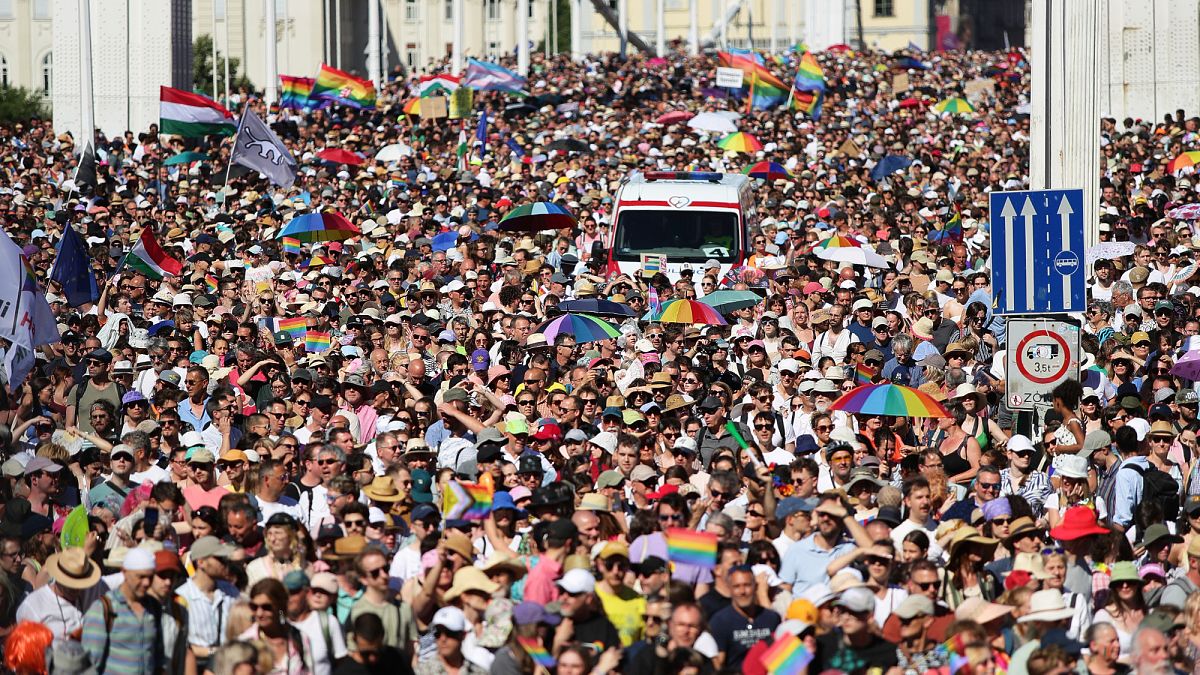

In a remarkable display of resilience and unity, the heart of Budapest witnessed a vibrant sea of colors as over 100,000 individuals took part in the 30th annual Pride parade. This impressive turnout came in defiance of a governmental ban imposed by Prime Minister Viktor Orbán’s administration, reflecting the enduring spirit of the pro-LGBTQ+ movement within Hungary.
The parade, a bold protest against the government’s crackdown on LGBTQ+ rights, served as a beacon of hope and inclusion. Participants, undeterred by the ban, marched through the streets of Budapest, carrying banners and flags that proudly demonstrated their commitment to diversity and equality. Despite the challenges posed by official restrictions, the event remained peaceful, focusing on sending a strong message of acceptance and unity.
Hearteningly, the significance of Budapest Pride extends beyond its borders, inspiring global discussions about human rights and fostering solidarity among diverse communities. This year’s parade not only celebrated the LGBTQ+ community but also highlighted the broader struggle for freedom of expression and civil rights within Hungary. It underscored the vital role such events play in promoting dialogue and fostering understanding in societies facing division and discord.
While reflecting on the success of the Pride parade, it is essential to note that the event has also become a focal point for political discourse in Hungary. Various parties have leveraged the parade’s mass turnout to further their political agendas. This intersection of activism and politics is a reminder of the complex dynamics at play and the ongoing journey towards achieving genuine inclusivity and equality.
In a parallel thread in other parts of the world, the echoes of civic activism are equally powerful. In Lesotho, activist Tšolo Thakeli’s stand against unemployment has captured significant attention. Thakeli, known for his longstanding campaigns on youth joblessness, faced arrest after releasing a video criticizing Prime Minister Sam Maketane’s employment policies. His story shines a light on the broader issues of freedom of speech and the importance of holding leaders accountable.
The situation in Lesotho reminds us of the universal quest for justice and opportunity. Thakeli’s advocacy highlights the importance of dialogue and action in addressing the needs of the youth and underscores the courage required to speak out against systemic challenges. It also raises awareness about the broader pattern of governmental responses to dissent, a theme that resonates across various contexts globally.
Together, these stories from Budapest and Lesotho illustrate the power and potential of grassroots movements in effecting change. They highlight that while the path to progress might be fraught with obstacles, the resolve of individuals and communities working towards a just society is unwavering.
In conclusion, these unfolding narratives of courage and community engagement showcase a world where positive transformation is driven by collective action, resilience, and hope. They inspire us to continue advocating for a future where all individuals, regardless of their identity or background, can come together to celebrate diversity and strive for equality.
Source: {link}
